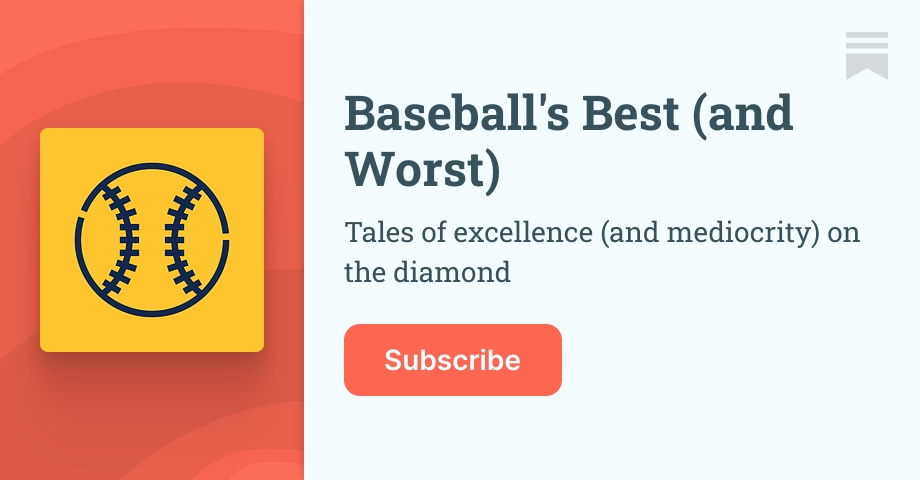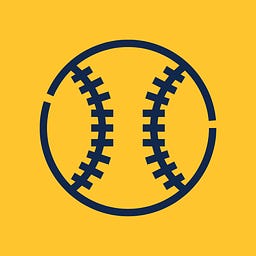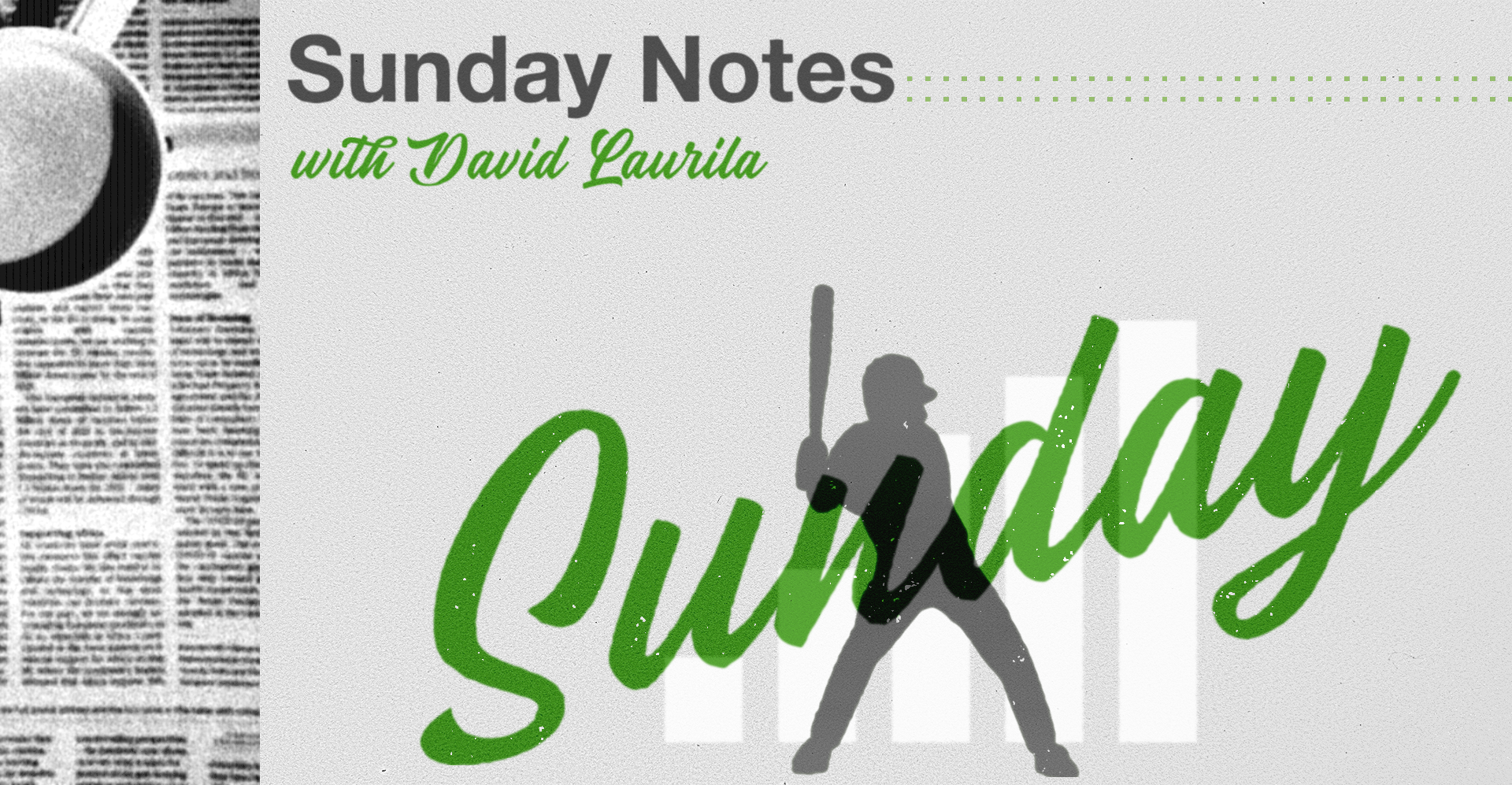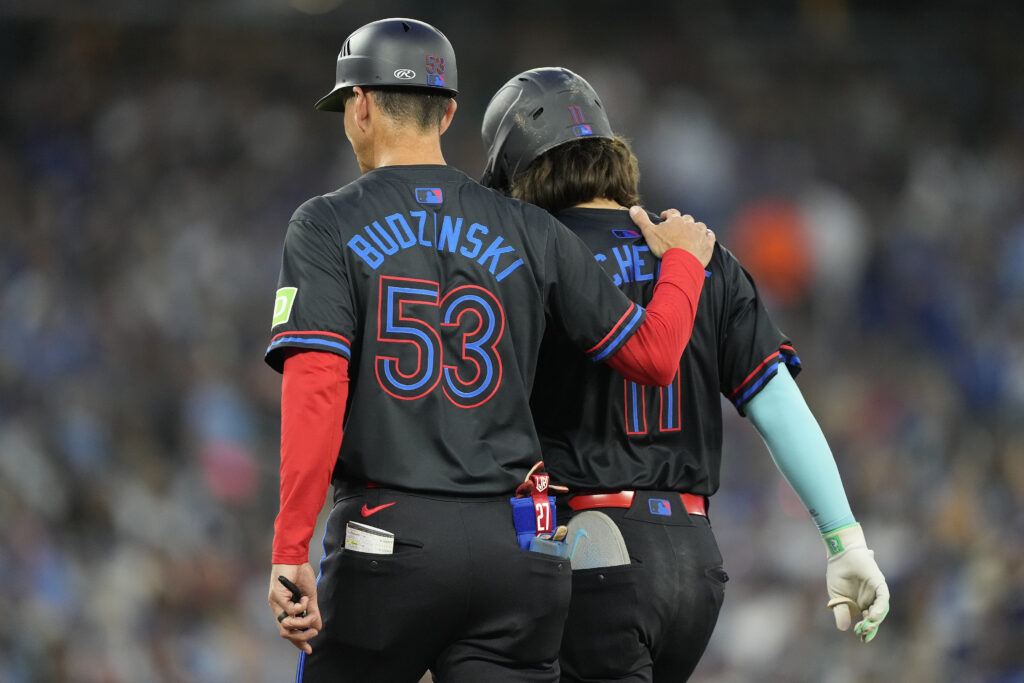
The Giants and Guardians don’t have any true connection apart from their preliminary letters.
The 2 golf equipment play on reverse sides of the nation — San Francisco and Cleveland, in fact — they usually belong to totally different leagues. However they do have an alphabetical hyperlink of latest classic, one which started when the Cleveland Indians morphed into the Guardians in November 2021.
That final reality is what issues right here, as I proceed my weekly examination of the intense years for a pair of franchises, their greatest and worst seasons through the Trendy Period (1961 to the current). I’m continuing in alphabetical order, and at present is dedicated to the G’s.
I calculated the crew scores for each membership through the 62-year interval, after which I ranked every franchise’s squads from greatest to worst. The system for TS generates an equalized rating on a 100-point scale, permitting direct comparisons of groups from totally different years. (Click here to learn more about TS.)
Let’s check out the intense seasons for at present’s franchises:
Finest 12 months for the Giants: This will likely appear unusual. The Giants received three world championships (2010, 2012, 2014) through the Trendy Period, however they ran up their highest TS in 2002, regardless of dropping a seven-game World Collection to the Anaheim Angels. Left fielder Barry Bonds received the Nationwide League’s Most Beneficial Participant Award in 2002 after batting .370, blasting 46 homers, and driving in 110 runs. Second baseman Jeff Kent batted .313 with 108 RBIs. 5 pitchers received at the very least a dozen video games, led by Russ Ortiz and Kirk Rueter with 14 apiece.
Worst 12 months for the Giants: San Francisco hovered round .500 between 1981 and 1983, then plummeted badly in 1984. The latter squad suffered 96 losses, the franchise’s highest variety of defeats in any season since 1943. Outfielder Chili Davis was a uncommon standout, batting .315 with 81 runs batted in. Left fielder Jeffrey Leonard tied Davis for the membership’s home-run lead with 21. Mike Krukow anchored the rotation with an 11-12 file.
Finest 12 months for the Guardians/Indians: The schedule for 1995 was shortened to 144 video games due to a labor dispute, however that didn’t trouble the Indians. They nonetheless secured 100 victories, operating away with the American League Central by 30 video games over runner-up Kansas Metropolis. The dream resulted in a six-game World Collection loss to Atlanta. The Indians’ assault was powered by left fielder Albert Belle (50 homers) and proper fielder Manny Ramirez (31). Middle fielder Kenny Lofton stole 54 bases. Beginning pitchers Orel Hershiser and Charles Nagy normal an identical 16-6 information to guide the workers.
Worst 12 months for the Guardians/Indians: Simply 4 years previous to that tremendous 1995 season, the Indians posted a pathetic 57-105 mark in 1991. The variety of losses stays the worst to this present day in membership historical past, stretching again to 1901. Belle led the membership in homers (28) and RBIs (95), whereas Nagy was the one pitcher to achieve double digits in wins. He had 10.
Scroll right down to see the highest and backside 10 lists for each groups between 1961 and 2022. Rankings for all 30 big-league golf equipment might be discovered within the print version of Baseball’s Best (and Worst) 2023 Yearbook.
Every crew is listed beneath with a selected season in brackets, adopted by the regular-season win-loss file, postseason outcomes (if any) in parentheses, margin between runs scored and allowed per sport, and Trendy Period percentile.
Postseason outcomes are abbreviated this manner: P for a playoff look, L for a league title, and W for a World Collection championship.
The Trendy Period percentile is the share of all 1,656 groups between 1961 and 2022 that the given membership outperformed, based mostly on relative scores.
A brand new installment will arrive in your electronic mail every weekday morning
1. Giants [2002], 95-66 (LP), plus-1.03 margin, 96.3% in period
2. Giants [1989], 92-70 (LP), plus-0.61 margin, 95.5% in period
3. Giants [2010], 92-70 (WLP), plus-0.70 margin, 94.1% in period
4. Giants [1962], 103-62 (LP), plus-1.14 margin, 94.0% in period
5. Giants [2021], 107-55 (P), plus-1.30 margin, 93.8% in period
6. Giants [2012], 94-68 (WLP), plus-0.43 margin, 92.8% in period
7. Giants [2000], 97-65 (P), plus-1.10 margin, 92.6% in period
8. Giants [2014], 88-74 (WLP), plus-0.31 margin, 92.3% in period
9. Giants [1993], 103-59, plus-1.06 margin, 90.6% in period
10. Giants [2003], 100-61 (P), plus-0.73 margin, 88.3% in period
1. Giants [1984], 66-96, minus-0.77 margin, 3.4% in period
2. Giants [1996], 68-94, minus-0.68 margin, 7.4% in period
3. Giants [1985], 62-100, minus-0.73 margin, 10.2% in period
4. Giants [2017], 64-98, minus-0.85 margin, 10.9% in period
5. Giants [1979], 71-91, minus-0.49 margin, 16.6% in period
6. Giants [1995], 67-77, minus-0.86 margin, 16.7% in period
7. Giants [1992], 72-90, minus-0.45 margin, 18.8% in period
8. Giants [2018], 73-89, minus-0.59 margin, 20.0% in period
9. Giants [2008], 72-90, minus-0.73 margin, 20.4% in period
10. Giants [2005], 75-87, minus-0.59 margin, 23.3% in period
1. Indians [1995], 100-44 (LP), plus-1.62 margin, 99.3% in period
2. Indians [2017], 102-60 (P), plus-1.57 margin, 95.8% in period
3. Indians [2016], 94-67 (LP), plus-0.63 margin, 94.4% in period
4. Indians [1996], 99-62 (P), plus-1.14 margin, 92.0% in period
5. Indians [1999], 97-65 (P), plus-0.92 margin, 89.1% in period
6. Indians [1997], 86-75 (LP), plus-0.33 margin, 89.0% in period
7. Indians [1994], 66-47, plus-1.04 margin, 88.9% in period
8. Indians [2005], 93-69, plus-0.91 margin, 86.9% in period
9. Indians [2000], 90-72, plus-0.83 margin, 84.5% in period
10. Indians [2007], 96-66 (P), plus-0.66 margin, 84.3% in period
1. Indians [1991], 57-105, minus-1.13 margin, 0.5% in period
2. Indians [1987], 61-101, minus-1.33 margin, 2.3% in period
3. Indians [1971], 60-102, minus-1.26 margin, 2.7% in period
4. Indians [1985], 60-102, minus-0.81 margin, 4.6% in period
5. Indians [2012], 68-94, minus-1.10 margin, 6.6% in period
6. Indians [1969], 62-99, minus-0.89 margin, 10.7% in period
7. Indians [2009], 65-97, minus-0.57 margin, 12.9% in period
8. Indians [1973], 71-91, minus-0.90 margin, 13.4% in period
9. Indians [2010], 69-93, minus-0.65 margin, 15.2% in period
10. Indians [1983], 70-92, minus-0.50 margin, 23.0% in period






